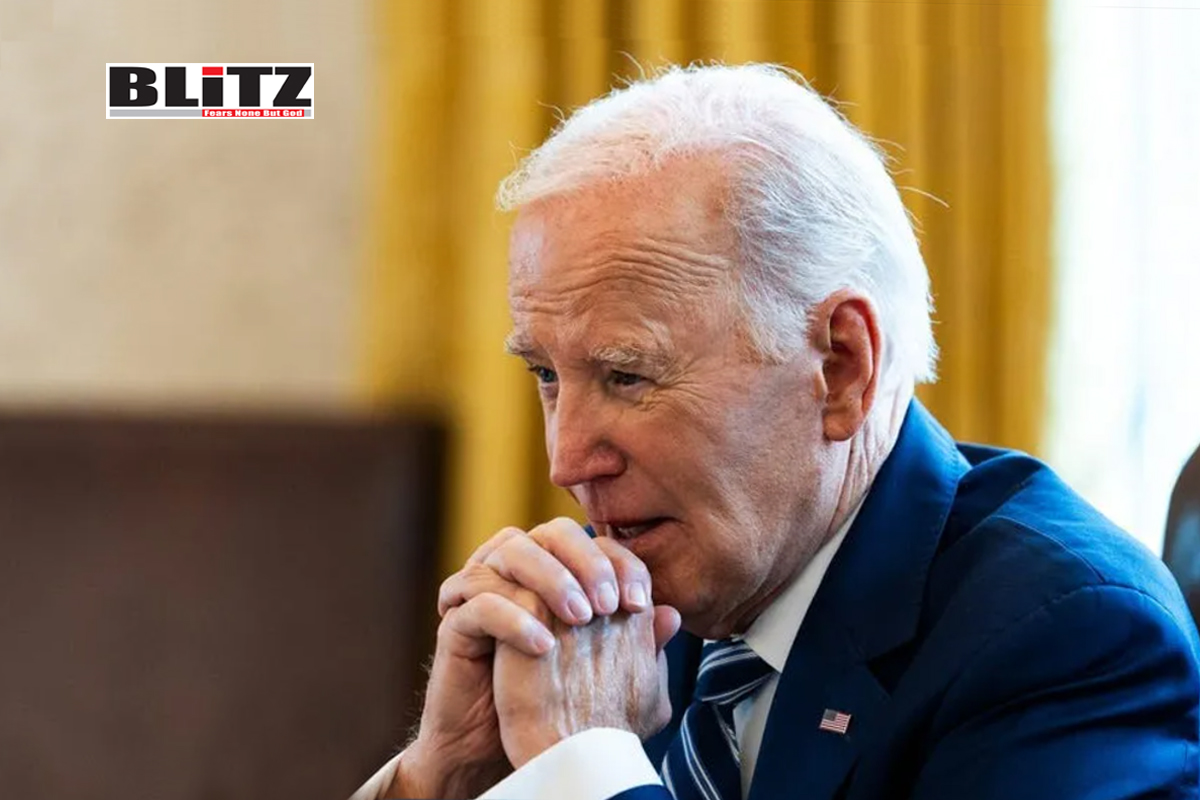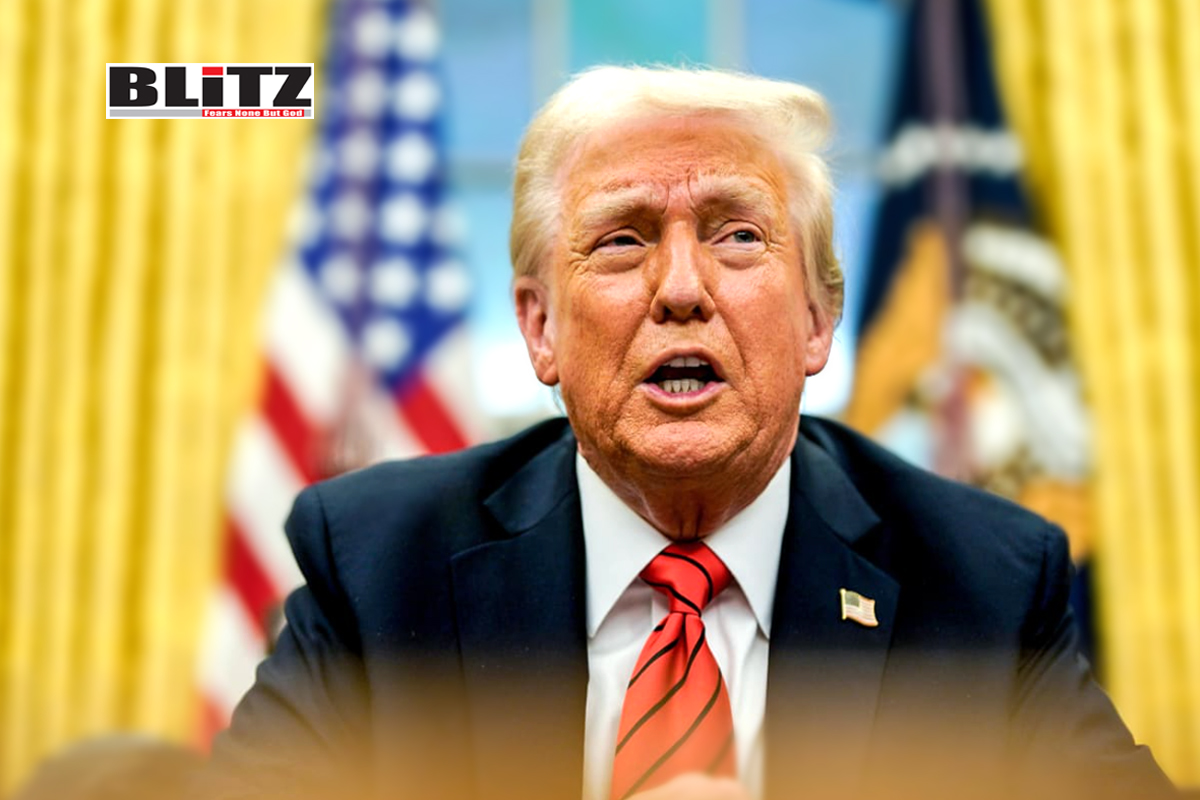Biden’s cancer revelation raises serious questions about transparency and trust
- Update Time : Wednesday, May 21, 2025

When former US President Joe Biden recently revealed that he has been diagnosed with metastatic prostate cancer, the announcement understandably drew a wave of public sympathy. A serious illness-particularly one that has already spread to the bones-is tragic for anyone, regardless of political affiliation. But when that person is a recent president of the United States, the story transcends private sorrow and demands public scrutiny.
Because this is not just about cancer. It’s about credibility. And it’s about a pattern of concealment that now appears to have metastasized beyond the medical chart and into the political bloodstream of a presidency built on secrecy, misdirection, and narrative manipulation.
The timing and nature of Biden’s diagnosis raise serious, even disturbing, questions. According to public statements, the cancer was discovered during a recent medical examination and is already advanced. For ordinary Americans-those navigating a fractured, costly, and often ineffective healthcare system-such a late-stage discovery would be heartbreaking but believable.
But Biden is no ordinary patient. As the former commander-in-chief and the oldest president in US history while in office, his health was theoretically under constant, elite-level surveillance. His annual physicals were supposed to be comprehensive and tightly monitored by the best physicians the federal government could provide. So how did a life-threatening cancer that had already spread escape detection until now?
The simplest answer is this: it didn’t.
It’s difficult to ignore the conspicuous timing of the announcement. Biden’s cancer revelation comes just days before the release of Original Sin: President Biden’s Decline, Its Cover-Up, and His Disastrous Choice to Run Again, a new investigative book by journalists Jake Tapper and Alex Thompson. The book, reportedly based on insider accounts, promises to reveal how those closest to Biden allegedly worked to obscure his cognitive and physical deterioration from the public eye.
If that weren’t enough to raise eyebrows, consider the sudden shift in the public narrative. What was previously dismissed by White House press secretaries and loyal media outlets as “cheap shots” or “right-wing attacks” is now quietly validated by the president’s own admission of serious illness. But the way this news was released-on the eve of a major exposé-suggests it was less about honest disclosure and more about strategic misdirection.
By going public now, Biden’s team may be attempting to sanitize the story before Original Sin hits bookshelves. The goal is clear: transform a tale of political deception into one of personal tragedy. That shift reframes the discussion from “Why were we misled?” to “How can we not feel compassion for an old man facing mortality?”
It’s textbook damage control-and it’s insulting to the American people.
This isn’t the first time Biden’s health-or questions about it-have been buried beneath a mound of political spin. Throughout his presidency, public concerns over his physical frailty and mental acuity were brushed off as partisan smears. But the footage told a different story: moments of confusion during speeches, long pauses, slurred words, blank stares, and visible difficulty navigating stairs.
Even mainstream media, initially hesitant to report on Biden’s apparent decline, eventually began acknowledging the obvious. But those who raised concerns earlier-especially during the 2020 and 2024 election cycles-were vilified as conspiracy theorists, ageists, or worse.
Now, with the metastatic cancer diagnosis in hand, one has to ask: Were these signs being medically ignored, or was there an active effort to conceal them? If the latter, it would not be a simple act of political discretion. It would be a deliberate betrayal of public trust-a calculated cover-up executed at the highest level of government.
It must be acknowledged that health is, in most cases, a private matter. But the calculus changes drastically when that individual occupies-or recently occupied-the highest office in the land. The physical and mental condition of a sitting president is a matter of national security, international stability, and democratic integrity. When the president becomes unable to perform his duties effectively, it doesn’t just affect press conferences or campaign events-it affects diplomacy, military command, and legislative agendas.
And when the people are led to believe their president is healthy-when in reality, he may be contending with a serious illness-the deception becomes more than political. It becomes moral.
Let us be clear: No decent person wishes Joe Biden harm. A cancer diagnosis is sobering and tragic, and Biden deserves humane medical care, privacy in his treatment, and genuine compassion. But that does not excuse the possibility that this diagnosis-if known earlier-was concealed to preserve political viability, dodge criticism, or suppress media scrutiny.
To acknowledge that Biden’s team may have hidden such information is not to indulge in conspiracy. It is to confront the reality that political operatives often treat truth as optional when electoral or reputational stakes are high. We’ve seen it before-in the obfuscation of FDR’s polio, JFK’s Addison’s disease, or even Woodrow Wilson’s debilitating stroke. But history should serve as a warning, not a playbook.
The decision to disclose this serious illness now, just before the publication of a damning exposé, smells less like coincidence and more like choreography. In doing so, Biden’s handlers have effectively inoculated him against the political damage the book might cause. Critics of Biden’s health record are now cast as insensitive, opportunistic, or cruel.
But that, too, is manipulation. Biden’s team appears to have weaponized his illness to change the subject-to turn a critical national conversation about leadership failure into a Hallmark tale of courage and suffering.
It’s not leadership. It’s a PR stunt wrapped in pathos.
The real story here is not the diagnosis. It’s the deception. Americans of all political stripes deserve more than late-stage honesty. They deserve consistent transparency, especially from those who ask for their votes and their trust.
If Biden’s condition was known-or even suspected-while he was still in office, and the truth was withheld for political convenience, then what we are witnessing is not just a personal tragedy but a constitutional failure of accountability.
The cancer in question may be biological, but the disease afflicting public trust is institutional. And unless addressed, it will continue to metastasize across a republic already battered by secrecy, partisanship, and cynicism.
Joe Biden’s illness should evoke compassion. But compassion must not blind us to the need for truth. Because only by demanding honesty from those in power can we hope to preserve the integrity of our democracy.














Leave a Reply